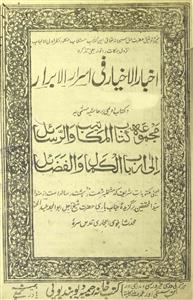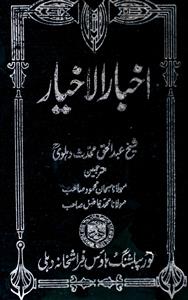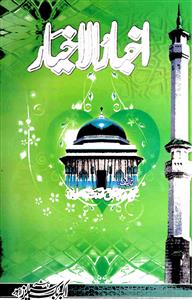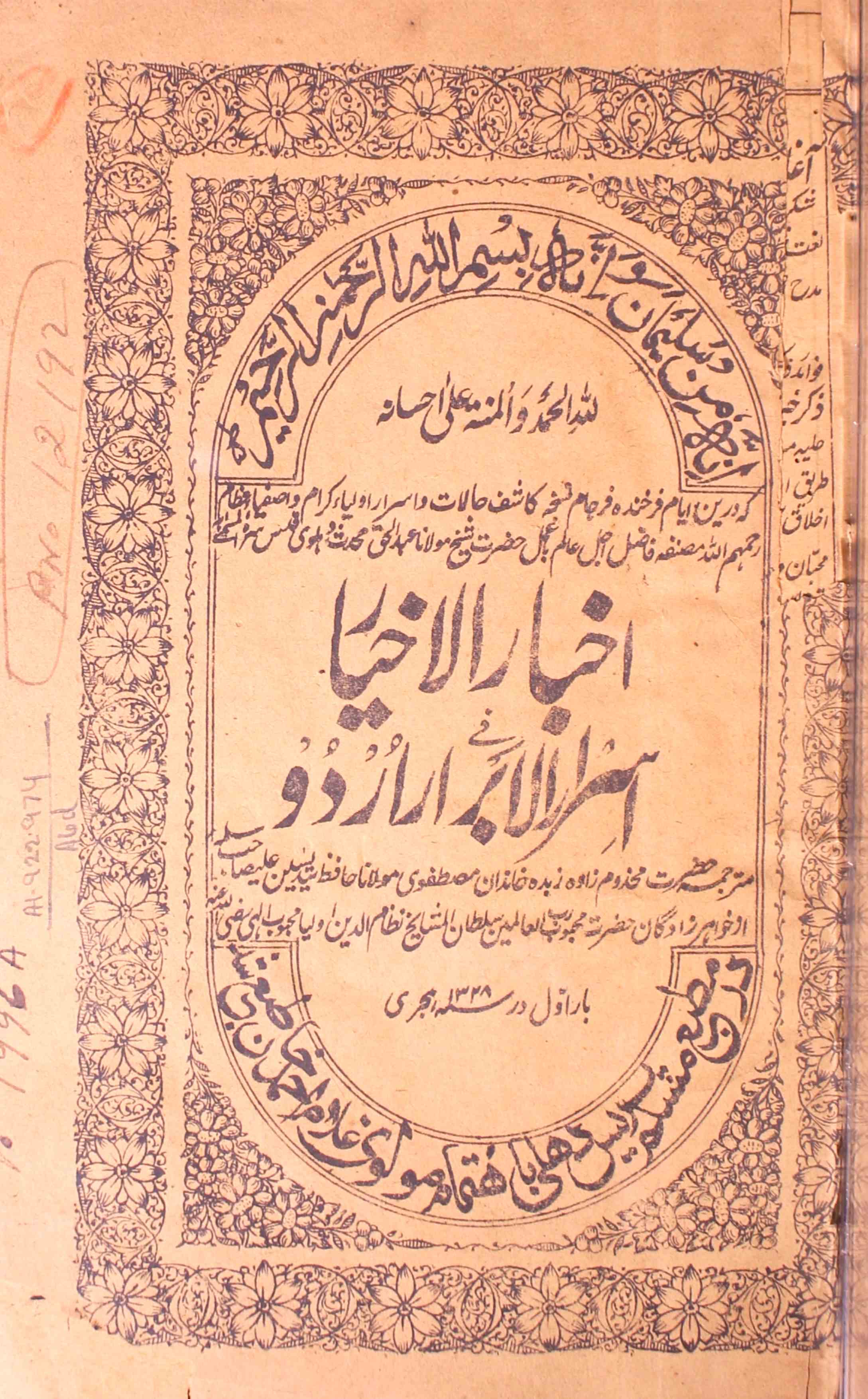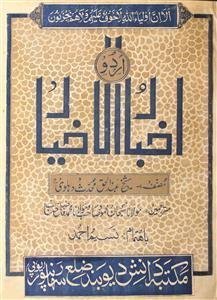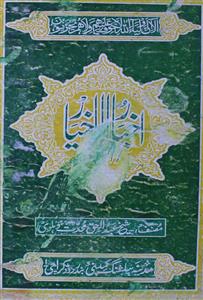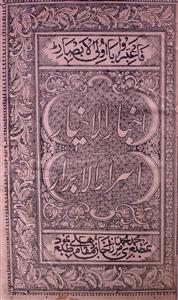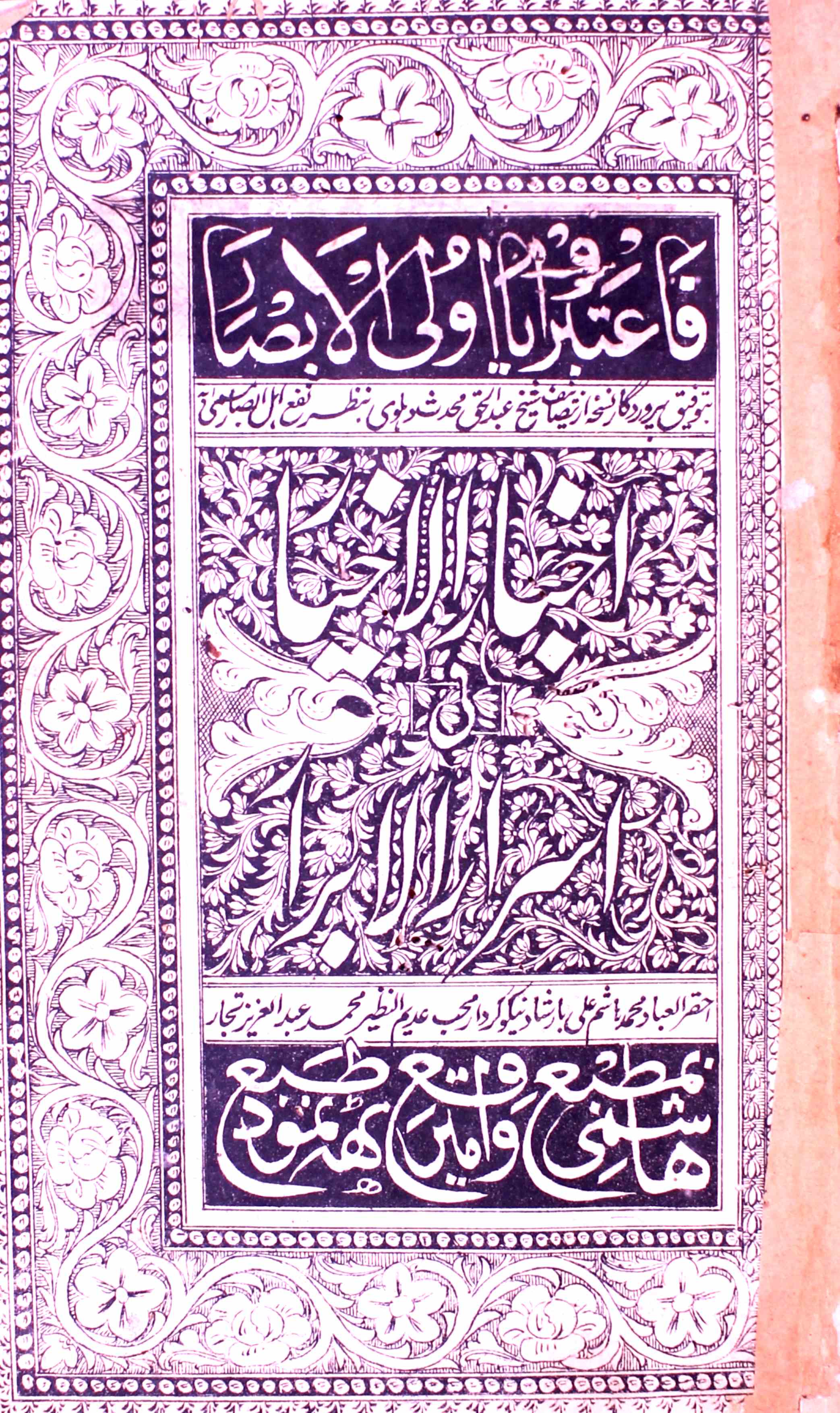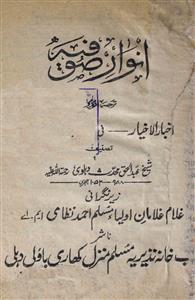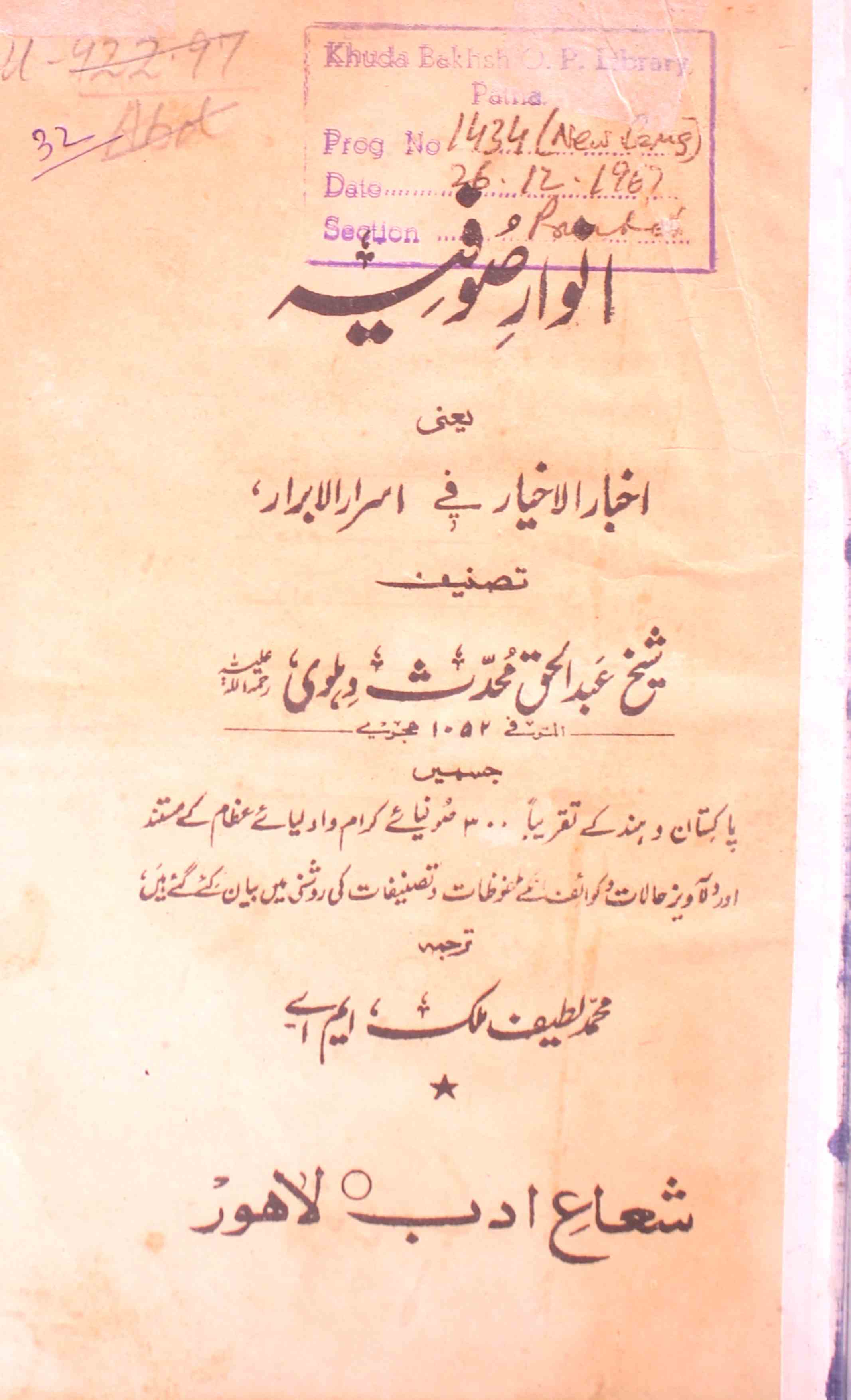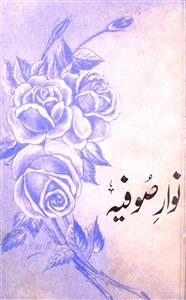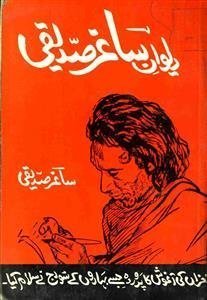 For any query/comment related to this ebook, please contact us at haidar.ali@rekhta.org
For any query/comment related to this ebook, please contact us at haidar.ali@rekhta.org
About The Book
یہ شیخ عبدالحق محدث دہلوی کی بلند پایہ تصنیف ہے جوکہ فارسی زبان میں ہے۔ اس تذکرےمیں پاک و ہند کے تقریباً تین سو اولیاء کرام کے سوانحی خاکے دئے گئے ہیں۔ اس کاتاریخی نام ’’ذکرالاولیا‘‘ہے۔ یہ کتاب 1001 ہجری میں مکمل ہوئی تھی۔ اس کتاب میں صوفیا کو ادوار اور زمانہ حیات کی بنیاد پر تین طبقوں میں منقسم کیا گیا ہے۔ اس کے بعد 14 مجاذیب اور 5 صالحات کا بھی ذکر ہے ۔ پہلے طبقے میں خواجہ معین الدین چشتی اجمیری سے لیکر شیخ فخر الدین تک 20 صوفیا کا ذکر ہے ، دوسرے طبقے میں حضرت بابا فرید الدین گنج شکر سے مولانا احمد حافظ تک 43 صوفیا کا تذکرہ ہے،تیسرے طبقے میں حضرت شیخ نصیرالدین محمود چراغ دہلی سے مولانا احمد بخشی تک 192 صوفیا کا تذکرہ ہے ، اس کے بعد حضرت شیخ ابو الغیب بخاری سے لیکر سبحان مجذوب تک 14 مجاذیب کا تذکرہ ہے ۔اس کا زیادہ تر حصہ حجاز میں لکھا گیا ،حضرت شیخ عبد الحق دہلوی نے یہ تذکرہ جہانگیر کی خدمت میں پیش کیا تھا جس کا ذکر جہانگیر نے اپنی توزک میں بھی کیا ہے ، اس تذکرے کی سب سے ممتاز خصوصیت یہ بھی ہے کہ شیخ عبد الحق نے اس میں صوفیا سے متعلق کشف و کرامات کے ذکر سے گریز کیا ہے اور اگر کہیں ان سے متعلق کچھ واقعات ذکر بھی ہوئے ہیں تو شیخ عبد الحق نے اس ذکر کے بعد واللہ اعلم بالصواب لکھ کر اس پر مستند ہونے کا شک دور کر دیا ہے۔
About The Author
Shaikh Abd al-Ḥaqq Muḥaddith Dehlawi (name: Abd al-Ḥaqq; honorific: Abū al-Majd; title: Muḥaddith Dehlawi) was one of the eminent scholars, hadith experts, authors and Sufi saints of the Indian subcontinent. He was born on 1 Muḥarram 958 AH / 9 January 1551 CE in Delhi. His father, Shaykh Sayf al-Dīn, was a devout Sufi and poet. ʿAbd al-Ḥaqq received his early education from his father, memorised the Qur’an at a young age, and later travelled to Transoxiana (Mawaraʾ al-Nahr) to study under renowned scholars.Spiritually, he was initiated into the Qadiri order by his father and received khilafah (spiritual succession) in the Naqshbandī order from Shaykh Khwājah Baqi Billah. He also had exceptional devotion to Ghawth al-Aaẓam ʿAbd al-Qadir al-Jilani.
During Emperor Akbar’s reign, when the heretical doctrine of “Dīn-i-Ilāhī” was spreading, Shaykh ʿAbd al-Ḥaqq established a madrasa in Delhi and began teaching and delivering sermons, guiding the public back to orthodox Islam. His literary output was immense: he wrote over 134 works across more than thirty disciplines. Among his best-known writings are Akhbār al-Akhiyār, Muqaddimah Mishkāt al-Maṣābīḥ, Nūriyyah Sulṭāniyyah and many other scholarly and reformative treatises. He also sent numerous admonitory letters to rulers, scholars and Sufis of his time.Shaykh ʿAbd al-Ḥaqq Muḥaddith Dehlawī passed away on 22 Rabīʿ al-Awwal 1052 AH / 20 June 1642 CE in Delhi, where his shrine remains a centre of visitation. His intellectual and spiritual contributions left a profound mark on the religious and scholarly life of the subcontinent, and he is still regarded as one of its great hadith scholars and reformers.
 For any query/comment related to this ebook, please contact us at haidar.ali@rekhta.org
For any query/comment related to this ebook, please contact us at haidar.ali@rekhta.org
Write a Review
Jashn-e-Rekhta 10th Edition | 5-6-7 December Get Tickets Here
